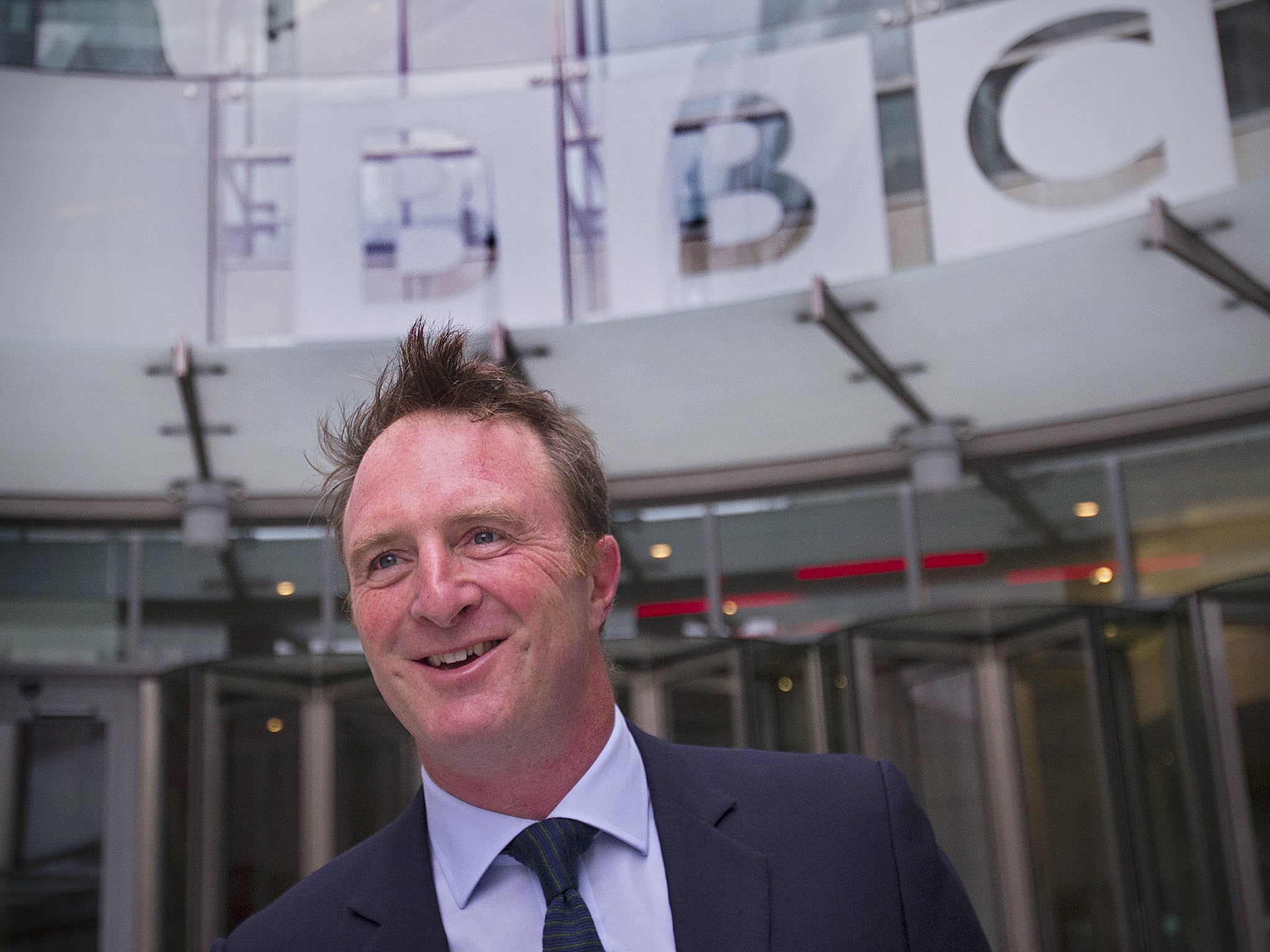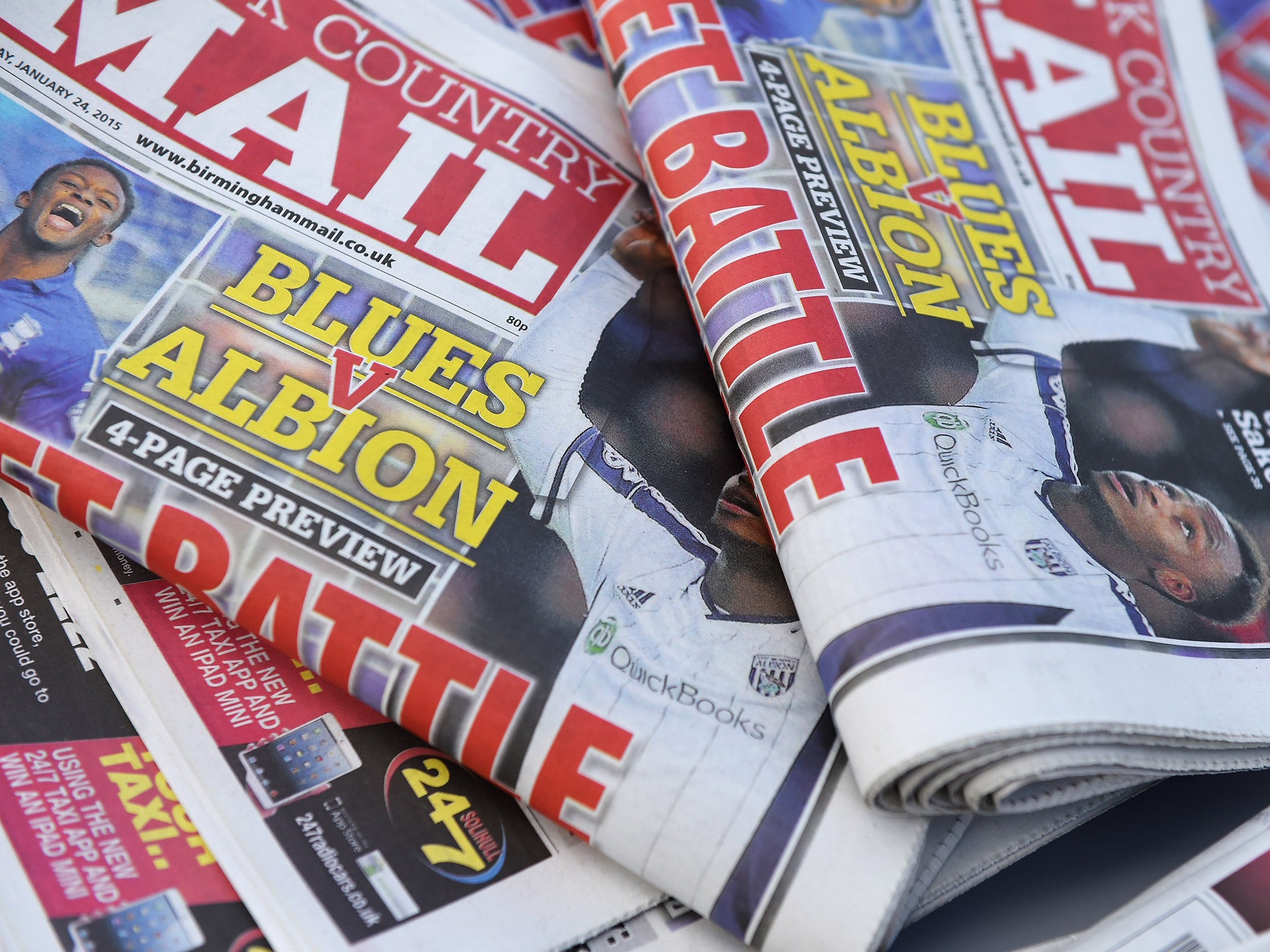Local newspapers want access to BBC video content to improve regional news coverage
James Harding held talks with CEOs of three largest local newspaper groups

Your support helps us to tell the story
From reproductive rights to climate change to Big Tech, The Independent is on the ground when the story is developing. Whether it's investigating the financials of Elon Musk's pro-Trump PAC or producing our latest documentary, 'The A Word', which shines a light on the American women fighting for reproductive rights, we know how important it is to parse out the facts from the messaging.
At such a critical moment in US history, we need reporters on the ground. Your donation allows us to keep sending journalists to speak to both sides of the story.
The Independent is trusted by Americans across the entire political spectrum. And unlike many other quality news outlets, we choose not to lock Americans out of our reporting and analysis with paywalls. We believe quality journalism should be available to everyone, paid for by those who can afford it.
Your support makes all the difference.Local newspapers want access to the BBC’s programme library for use on their websites in what would be a historic change in the usage of BBC content.
James Harding, the BBC’s Director of News and Current Affairs, held talks with CEOs of the three largest local newspaper groups, aimed at improving regional news coverage across Britain.
The local press is seeking access to BBC clips and films to augment stories on the newspaper sites by providing related content. It has rejected the BBC’s offer to provide a small amount of broadcast material produced by a dedicated national pool of 100 of the corporation’s own journalists. “We don’t just want the BBC to be handing us morsels like Marie Antoinette,” said one newspaper industry source. “We want access to a library so that we can decide on what video to embed in our sites.”

The use of BBC material on commercial websites would be ground-breaking and the corporation has resisted offers to share its content on platforms such as BSkyB’s Sky Go service, which hosts shows from ITV, Channel 4 and Channel 5. The local press believes that the BBC has created precedents elsewhere, such as on YouTube, where BBC clips can be seen in a commercial environment. The corporation also has deals to share news content with international partners.
The publishers are also requesting that the BBC sets aside a pool of money to be used in commissioning local papers to write and film stories for the corporation’s web sites and local news bulletins. The system would be similar to that which the BBC operates in television, where 25 per cent of programmes are commissioned from independents. “We want them to commission us, pay us, credit us and link back to our websites,” said one of the publishers. “Currently they lift our stories and put them on the BBC site without a credit.”
The local newspaper groups are suggesting that the BBC should only commission from publishers registered with the Independent Press Standards Organisation. The industry is fearful that the BBC might further challenge its business model by commissioning bloggers and other small online publishers to contribute to Britain’s biggest website.
The BBC has expressed a willingness to work with the regional press to safeguard the future of local news coverage and the Director General Lord Hall last week proposed a plan to create a pool of 100 BBC journalists dedicated to reporting on “councils, courts and public services”. He promised to offer the video and audio material that this unit produced to local newspaper groups for publishing on their sites.
But Ashley Highfield, vice chairman of the News Media Association, said: “It is hard to avoid the conclusion that the BBC’s proposal[s]…are anything other than BBC expansion into local news provision and recruitment of more BBC local journalists through the back door.”
Mr Highfield, who is also CEO of Johnston Press, was among those attending the meeting with Mr Harding, along with Simon Fox, the CEO of Trinity Mirror and Henry Faure Walker, CEO of Newsquest.
Mr Harding gave a speech last year on The Revival of Local Journalism where he told publishers “we genuinely would like to help”. He said that the BBC has a “very real stake in the success of the local and regional news business” and admitted that its news operation “draws every day on stories, ideas and opinions out there in the papers” and other outside outlets.
Join our commenting forum
Join thought-provoking conversations, follow other Independent readers and see their replies
Comments